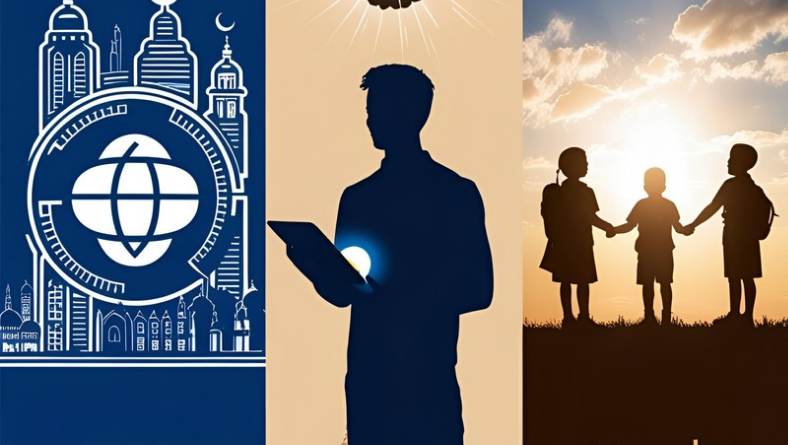Science, Technology, and Morality: The Pillars of National Progress
By Dr. Abdul Wadud Nafis, LC., MEI
The progress of a nation does not occur by chance. It is the result of a long process supported by two great forces: intellectual intelligence and moral excellence. In today’s competitive global era, science and technology are the primary instruments of development, but noble character is the guiding light. Without balance between the two, progress can become skewed—or even destructive.
A. The Role of Science and Technology in National Advancement
1. Knowledge as the Foundation of Civilization
History shows that advanced civilizations are born from a culture of knowledge—from classical Greece, the Islamic world in the Middle Ages, to the European industrial revolution. Knowledge is the basis of innovation and reform.
2. Technology as the Engine of Transformation
Technology simplifies life, increases productivity, and accelerates economic growth. The digital revolution and artificial intelligence are now reshaping the world.
3. Direct Impacts on Development
Economy: creative industries, tech startups, and digital economic transformation
Education: broad access through e-learning and online platforms
Healthcare: telemedicine and medical device innovations
Agriculture: smart farming systems
4. Independence and Sovereignty
A nation that masters science and technology is less vulnerable to economic or political domination. It becomes independent in decision-making and resource management.
B. The Role of Noble Morality in Guiding Progress
1. Morality as the Guardian of Values and Purpose
Progress without morality can become a boomerang: technology may be used destructively, and knowledge may be used to deceive. Morality ensures that knowledge serves the good.
2. Key Moral Values
Honesty: prevents corruption and manipulation
Responsibility: strengthens work ethic and professionalism
Discipline and Hard Work: the foundation of sustainable success
Justice and Empathy: prevents social inequality
3. Morality as a Source of Public and Social Trust
A morally upright society builds mutual trust. This strengthens social cohesion and fosters a spirit of cooperation in development.
C. Synergy of Knowledge, Technology, and Morality
1. Integration in Education
Educational curricula should emphasize not only science and technology, but also character and ethics development. This is the essence of holistic education.
2. Ethics-Based Development Policies
The government must embed ethical considerations in every science and technology policy—from research and industry to digitalization.
3. Building a Morally Intelligent Generation
The future generation must be technologically literate and morally conscious. Intellectualism without morality only creates smart but unwise individuals.
Conclusion
A nation’s progress cannot rely solely on physical and economic development. It must also include moral and spiritual development. Science and technology accelerate national strides, while noble character determines their direction. When the two are synergized, the resulting progress is not only impressive to the world but also brings benefit to all of humanity.
References
1. Al-Attas, S.M.N. (1980). The Concept of Education in Islam. Kuala Lumpur: International Institute of Islamic Thought and Civilization (ISTAC).
2. Azra, Azyumardi. (2005). Paradigma Baru Pendidikan Nasional. Jakarta: Kompas.
3. Badri, Malik. (2000). Contemporary Issues in Muslim Education. Kuala Lumpur: IIIT.
4. Daryanto & Karim, M. (2017). Pendidikan Karakter di Sekolah: Konsep dan Implementasi. Yogyakarta: Gava Media.
5. Indonesian Ministry of Education and Culture. (2013). Law No. 20 of 2003 on the National Education System. Jakarta: Kemendikbud.
6. Nasution, Harun. (1985). Islam Rasional: Gagasan dan Pemikiran. Bandung: Mizan.
7. Rifai, M. (2018). Etika Profesi dan Akhlak Mulia. Bandung: Pustaka Setia.
8. Suryopratomo, T. & Permadi, A. (2019). Revolusi Industri 4.0 dan Masa Depan Pendidikan. Jakarta: Gramedia.
9. UNESCO. (2015). Rethinking Education: Towards a Global Common Good? Paris: UNESCO Publishing.
10. Zakiah Daradjat. (1996). Pendidikan Islam dalam Keluarga dan Sekolah. Jakarta: Bulan Bintang.

